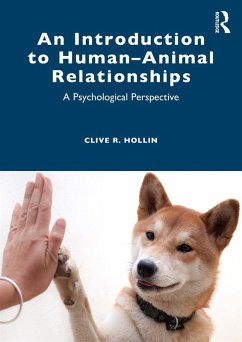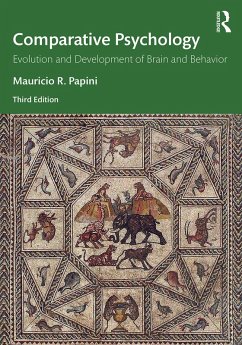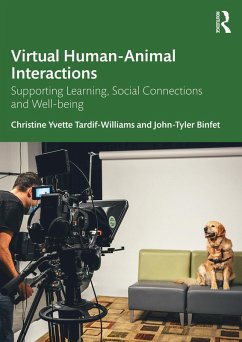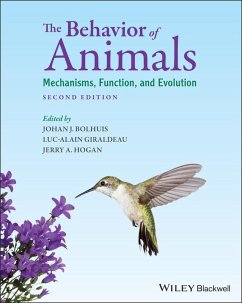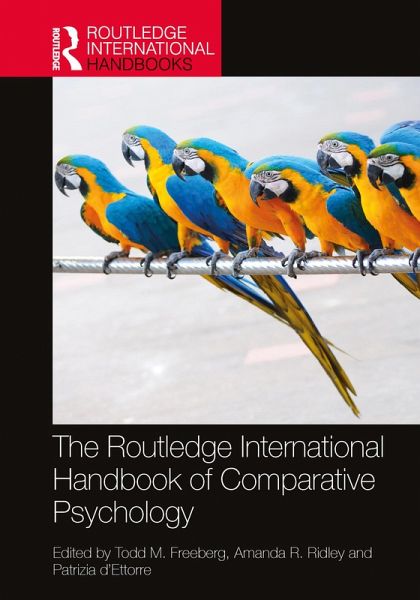
The Routledge International Handbook of Comparative Psychology (eBook, PDF)
Versandkostenfrei!
Sofort per Download lieferbar
43,95 €
inkl. MwSt.
Weitere Ausgaben:

PAYBACK Punkte
22 °P sammeln!
The Routledge International Handbook of Comparative Psychology is an international reference work that offers scientists and students a balanced overview of current research in the field of comparative psychology and animal behavior.The book takes an integrative approach to animal behavior, with most of the chapters discussing research involving both proximate (developmental and mechanistic) and ultimate (functional and phylogenetic) levels of analysis. Chapters cover the major ideas of core topics in the field and examine emerging research trends to provide readers deeper understanding of the...
The Routledge International Handbook of Comparative Psychology is an international reference work that offers scientists and students a balanced overview of current research in the field of comparative psychology and animal behavior.
The book takes an integrative approach to animal behavior, with most of the chapters discussing research involving both proximate (developmental and mechanistic) and ultimate (functional and phylogenetic) levels of analysis. Chapters cover the major ideas of core topics in the field and examine emerging research trends to provide readers deeper understanding of these ideas. One of the strengths of this book is its the coverage of core topics in comparative psychology and animal behavior from different - and diverse - perspectives. The diverse perspectives come from the wide range of focal species studied by chapter authors, a range traditionally quite atypical for comparative psychology, and from the widespread international representation of the authors and the diversity of departments and research centers at which these authors work in. The first part of the Handbook examines historical and foundational principles and theories in the field. The second part focuses on individual behavior systems. The final part of the book is devoted to a diversity of ideas that extend our understanding of behavior into new directions.
The Routledge International Handbook of Comparative Psychology is an essential resource for advanced undergraduate and graduate students, postdoctoral researchers, and established academics, as well as others who are interested in comparative psychology and animal behavior.
The book takes an integrative approach to animal behavior, with most of the chapters discussing research involving both proximate (developmental and mechanistic) and ultimate (functional and phylogenetic) levels of analysis. Chapters cover the major ideas of core topics in the field and examine emerging research trends to provide readers deeper understanding of these ideas. One of the strengths of this book is its the coverage of core topics in comparative psychology and animal behavior from different - and diverse - perspectives. The diverse perspectives come from the wide range of focal species studied by chapter authors, a range traditionally quite atypical for comparative psychology, and from the widespread international representation of the authors and the diversity of departments and research centers at which these authors work in. The first part of the Handbook examines historical and foundational principles and theories in the field. The second part focuses on individual behavior systems. The final part of the book is devoted to a diversity of ideas that extend our understanding of behavior into new directions.
The Routledge International Handbook of Comparative Psychology is an essential resource for advanced undergraduate and graduate students, postdoctoral researchers, and established academics, as well as others who are interested in comparative psychology and animal behavior.
Dieser Download kann aus rechtlichen Gründen nur mit Rechnungsadresse in A, B, BG, CY, CZ, D, DK, EW, E, FIN, F, GR, HR, H, IRL, I, LT, L, LR, M, NL, PL, P, R, S, SLO, SK ausgeliefert werden.





